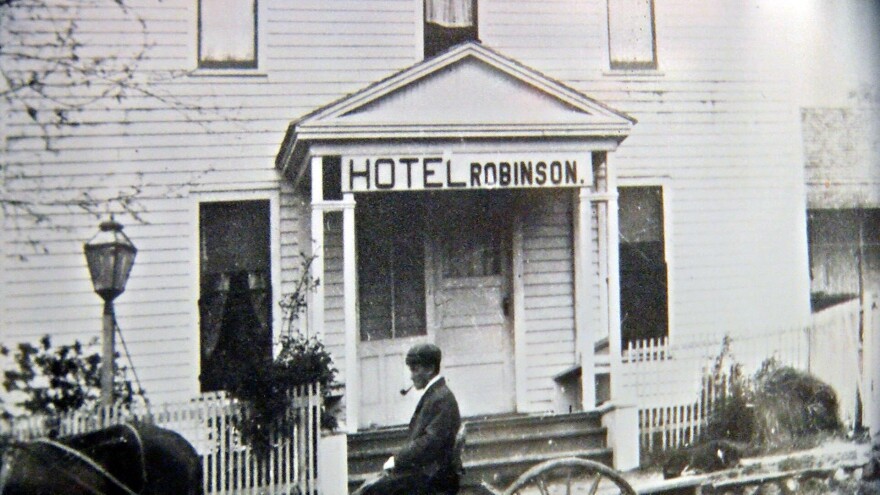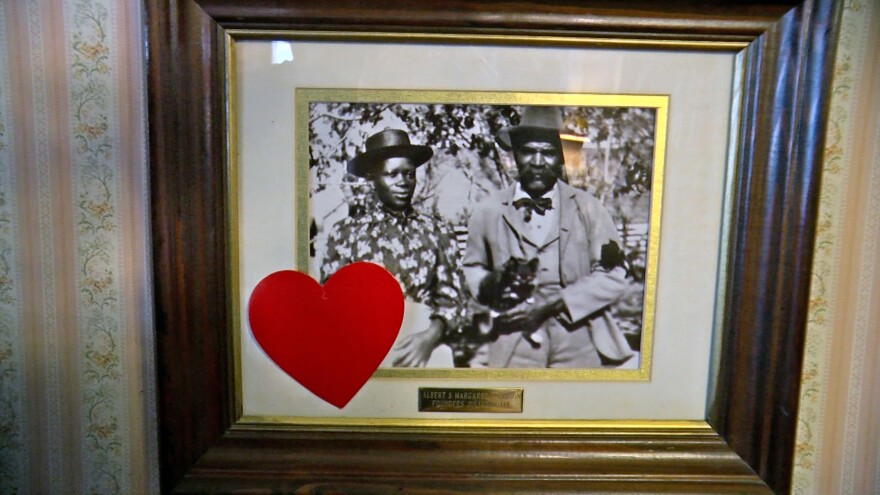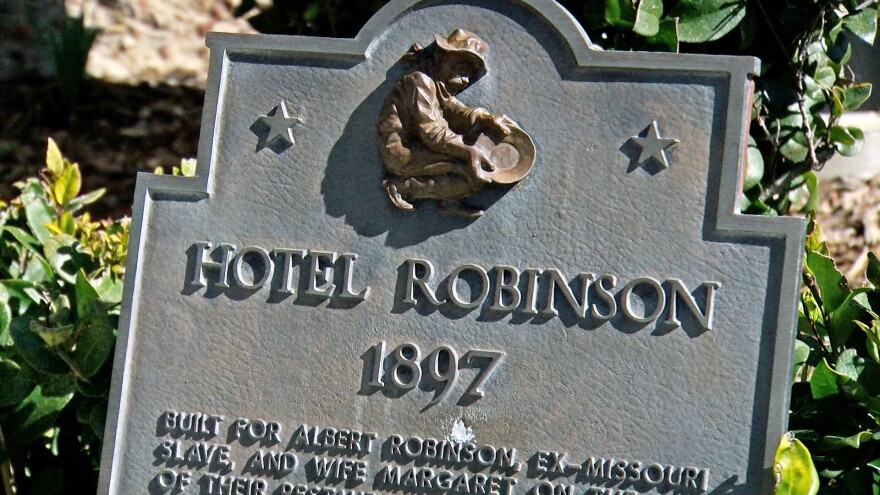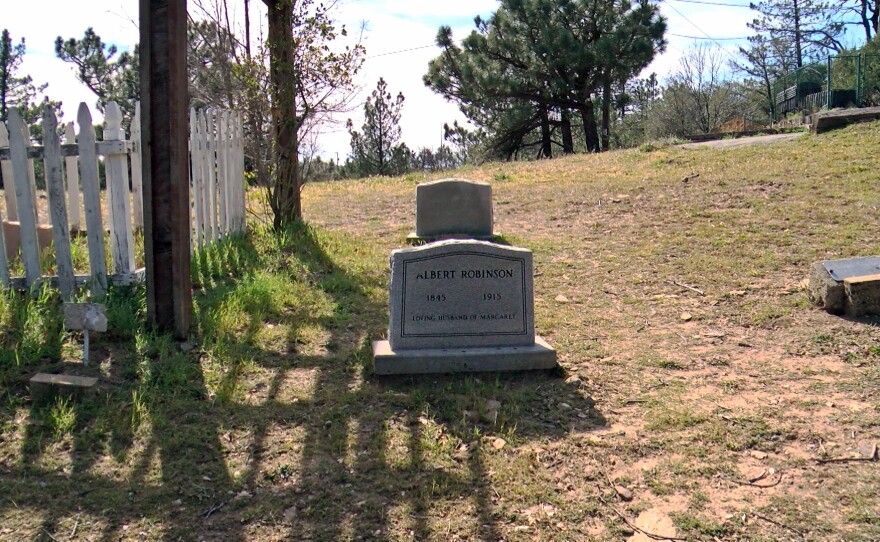Up in the backcountry sits the Julian Gold Rush Hotel. To everyday tourists, it's a charming bed and breakfast.
But a bronze plaque in front of the hotel brings to light its history: "Hotel Robinson. 1897. Built for Albert Robinson, ex-Missouri slave, and wife Margaret on the site of their restaurant-bakery."
It was once known as Hotel Robinson, and it's the sole surviving Julian mining-era hotel.

"It’s not only one of the oldest hotels owned by African Americans, but it’s also a national historical site,” said Larry Malone, a local historian who wrote "Black Pioneers in San Diego: 1880-1920"
“A lot of people were really surprised that Julian had that rich history of African American history," he said.
And part of that history started with a love story, said Chuck Ambers, curator of the African Diaspora Museum and Research Center.
“There's a love relationship between that hotel and Julian," he said. "Just like there was a love relationship between Albert and Margaret.”
San Diego's gold rush
Julian was a sleepy little town founded by former Confederate soldiers before gold was discovered there, Ambers said.
“It was a little podunk city until Fred Coleman, part of the gold rush up in Sacramento, followed the geological formations down California, followed to San Diego River in Mission Valley back up to its source hoping to find gold ... and he did,” he said.
Coleman was another Black pioneer in Julian. Coleman Creek, the site where gold was found in 1869, was named after him. That started San Diego's first and only gold rush.
The Robinsons

With the gold rush and the opportunities that came with it, Julian became a popular destination for many Black people. Among them was Albert Robinson — who showed up on the Census record in Julian in 1880, according to David Lewis, the town's historian. His family has lived in Julian for four generations.
“Albert, I'm assuming, was enslaved wherever he was living at the time," Lewis said. "He supposedly came here with a man named Levi Chase.”
Though Ambers said that might not be exactly the case.
"Some people want to make all African Americans ex-slaves, but there's no history about him being an ex-slave," he said. "He came into (the) San Diego area, in El Cajon as a laborer."
Robinson's wife, Margaret, came to Julian later. She married Albert in 1886.
"That is when I believe they started a bakery and a restaurant business, I believe, here on this site," Lewis said. "And they ran that from 1886 until 1902 when they built this hotel.”

Though the plaque said 1897, Lewis said a newspaper clipping from the time shows that the current hotel was built in 1902. He said the discrepancy was probably a result of poor record-keeping.
The Robinsons' hotel thrived, in part because of its location, Ambers said.
"What's fortunate for them, their property — that little restaurant was right across the street from the City Hall where the Butterfield stage line (Butterfield Overland Mail) coming from Arizona brought travelers,” he said.
The hall was also the social hub for Julian, with dances that could last all night, Lewis said. "And according to what I've read, the hotel provided meals for those dances at night."
“Mrs. Robinson, she was famous for apple pies, and people would come from miles around to sample Mrs. Robinson's apple pies,” Malone said.
While Julian is known for its apple pies, that tradition didn't start with Margaret Robinson, Ambers said.
“Her name gets linked sometimes with the apple pies, but she wasn't the only one that made apple pies," he said. "And so 'Julian apple pies' was not started by Margaret Robinson — that may be a folklore.”
Julian Hotel — aka Robinson Hotel

Albert Robinson died in 1915. He is buried in the town cemetery. And in 2006, recognizing his contribution to Julian, the town erected a new tombstone for him and other Black pioneers.
The grave originally did not have a tombstone, and it was marked with a rock — a pioneer tombstone, Lewis said.
Margaret Robinson ran the hotel by herself until 1921 when she sold it for $1,500 — which was a substantial amount at the time, Malone said. The hotel was then renamed the Julian Gold Rush Hotel — a name it still bears today.
The hotel has a lot of history. Dignitaries, socialites and politicians stayed there, including the Scripps family and U.S. Grant Jr., the son of President Ulysses S. Grant and founder of the US Grant hotel in 1910. The hotel was placed on the National Register of Historic Places in 1978.
Rooms in the hotel now bear the name of some of the famous people who once stayed there, as well as prominent Julian families.
For Lewis, the hotel is part of his family's history and the history of Julian.
"My great-uncle, who used to come to this hotel with his family when he was little and when they get to the front door, Albert would pick him up on his shoulders and walk him on into the hotel," Lewis said. "And my uncle said, 'I felt like I was 10 feet tall.'"





